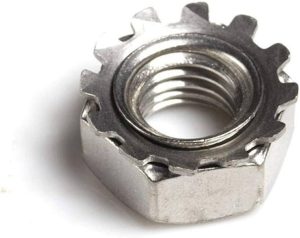Fine thread nuts offer unparalleled precision and strength in applications requiring exacting standards. These components are vital in industries where the margin for error is minimal, such as aerospace, automotive, and precision engineering.
Why Choose Fine Thread Nuts?
The choice of fine thread nuts hinges on several key factors, including their superior strength, greater accuracy in tension adjustment, and their ability to perform reliably in compact spaces. Their design allows for a closer fit between the threads of the nut and the bolt, which translates to better load distribution across the threads. This increases the nut’s grip strength and its resistance to loosening under vibrations.
Precision and Performance
Fine thread nuts boast a higher thread count per inch than their coarse-threaded counterparts. This higher density allows for finer adjustments in applications that demand precise tension control. For example, in a precision machining setup, the exact tensioning of bolts can significantly impact the quality of the final product. The ability to make these minor adjustments can be the difference between success and failure in high-stakes environments.
Strength and Durability
When it comes to strength, fine thread nuts excel by providing a stronger grip due to the increased surface contact with the bolt. This design characteristic means they can handle higher loads and are less likely to strip under stress. In terms of numbers, fine thread nuts often allow for a 10-20% increase in load-bearing capacity compared to coarse-threaded nuts in similar applications.
Additionally, these nuts are more resistant to loosening caused by vibrations or movement, making them ideal for use in machinery or vehicles. This resilience contributes to their durability, extending the lifespan of the assemblies they are part of.

Specifications and Selection
Selecting the right fine thread nut for your application involves considering various specifications, such as size, material quality, and thread pitch.
Size and Dimension
The size of a fine thread nut directly correlates with the bolt or stud it is intended to fit. Common sizes range from M2 to M20, accommodating most industrial and engineering needs. The specific dimension of a nut determines its compatibility with different bolt diameters and lengths, ensuring a secure fit.
Material Quality
Manufacturers produce fine thread nuts from a variety of materials, each offering distinct advantages. For instance, stainless steel nuts provide excellent corrosion resistance, making them suitable for outdoor or harsh environmental conditions. Meanwhile, titanium nuts offer a superior strength-to-weight ratio, ideal for aerospace applications where every gram counts.
Thread Pitch and Parameters
Thread pitch, the distance between thread peaks, is crucial for matching the nut to its corresponding bolt. Fine thread nuts typically have a pitch range from 0.35mm to 1.5mm, allowing for precise tension adjustments. This fine pitch contributes to their effectiveness in applications requiring detailed calibration.
Cost and Availability
While fine thread nuts may come at a higher initial cost compared to standard nuts, their value lies in their superior performance and longevity. Investing in high-quality fine thread nuts can lead to savings in maintenance and replacement costs over time. Moreover, their availability in a wide range of sizes and materials means there is a suitable option for nearly every application.
In summary, fine thread nuts represent a critical component in ensuring the strength, stability, and precision of various assemblies. Their detailed specifications cater to specific needs across industries, making them a cornerstone of modern engineering and manufacturing.
